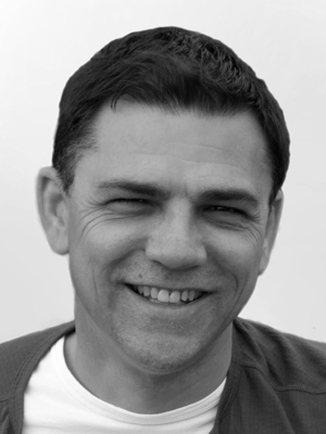|
We are moved by words, whether by the inspiration we get from reading a book, a quote that resonates with us, or listening to a stirring speech. Likewise the words spoken in the counselling room have the power to move, and therapy is the art of accurate description. But if that's all words do - describe something - then how can they possibly move us?
The inspiration for this article comes from a piece Oliver Burkeman wrote for the Guardian entitled "How to pick (and stop) an argument" and this is what started off my chain of thought, First, make an observation that’s factually correct, but implies a critical judgment. (Upon returning home in the evening: “Wow, it’s pretty untidy in here.”) source Oliver Burkeman in The Guardian Oliver revives the work of JL Austin to explain why arguments start. As a philosopher interested in language, he was curious about how words work. What he developed was something known as speech act theory. What's that? Austin said that words don't just describe things, they also do things, hence the title of his book, How to do things with words. Some ways of saying things also implied an action, such as coming home and saying "Wow, it's pretty untidy in here." The words not only describe, they also imply an action. In this case they are supposed to guilt trip your partner into tidying up. The irony being that the action they end up performing is to make your partner angry, and start an argument. He called these words performatives, because they perform an action. All sorts of words are performatives. Take president for instance. Being named "President of the United States" not only describes a position, it also performs an action. Being called president grants you power to do things, that being called candidate does not. All Laws are performative; they do something. For instance, the first line of the Welfare Reform and Work Act 2016 says, "The Secretary of State must lay a report before Parliament annually..." Saying what you mean Oliver Burkeman says there are two meanings going on here. The meaning of the sentence, and what you really mean by saying it. It implies that the way out of this conundrum is to say what you mean. Except... You can never say what you mean, because the moment you say it the meaning changes. Sounds crazy doesn't it? This was the insight of another philosopher Jacques Derrida, who was also interested in language. His interest was in performing detailed analysis of texts. What he noticed was that the act of description changed the meaning of the text, and that this process never stopped. description also performs an action I can illustrate how meaning shifts with description through an imaginary dialogue between an interviewer and a counsellor, Counsellor I remember there was this time when I had not long completed my training. I had just finished with a client, and it was like a light had come on, and they could see everything really clearly. As I was writing my notes, I clearly remember thinking, I really feel like I've finally become a counsellor. Notice the performative nature of being called interviewer, and how this changes the dialogue they use. Notice also how their statement seeks merely to describe the sense of suddenness, which they reinforce with the use of "just became." This creates a transformation in meaning for the counsellor. The curious part is how the second statement seems to contradict the first. When they say they suddenly became a counsellor, they find that they also meant they always had the qualities to be one. The counsellor seems to be unable to say exactly what they mean! Once they say something, the meaning changes. The question is why? To make sense of something we have to be able to compare it with something. To make any sense of becoming something we must also have a sense of always being something, because if we didn't we would have nothing to compare it against. Becoming would have no meaning if always didn't exist! The descriptive statement from the interviewer is the catalyst which allows this comparison to happen. And it is sharpening not diluting the description which allows it to occur. This is not a new idea. This idea is enshrined in a symbol that has been around in various forms for about 2,500 years. It's also very familiar... 
You will no doubt have seen this symbol countless times. It signifies how two equal opposites form a whole. The name, Yin Yang means "sunny side" and "shady side" It contains the idea that shadow can not be formed without light, heat without cold, and so on.
This also applies to a personal perspective, Hope can not exist without hopelessness, happiness without sadness, fear without courage, and so on. The two spots of colour signify how one side exists in the other, ready to re-emerge, as its opposite reaches its maximum. You may be wondering which of the two out of become and always the counsellor meant. Well, the answer is both! Rather than being one or the other, it is more about balance between the two. The interviewers reflection allows this balance to occur. Therapy as the art of accurate description Much of what I do in the counselling room is to describe what I see, hear, and sometimes what I feel in response to what is being said. A lot of my training was just about this process. How to make it as close to pure description as possible. Everyday, I witness transformations similar to my example, which appear from nothing more than applying the art of pure description. We often think that change is something we have to strive for, to make happen. In reality much of the change that happens in the counselling room is simply just waiting to emerge. Change it seems is built into the very words we use to make meaning, we just have to find a way to hear it. footnote - some deeper analysis
Title image by Fran Priestley
Yin Yang made by Freepik from www.flaticon.com is licensed by CC 3.0 BY
0 Comments
Leave a Reply. |
Categories
All
Archives
January 2021
|
BioI'm Mark, a Humanistic Counsellor. |
Home - Testimonials - Articles - Links - Contact - Book Appointment - Counselling Students - Privacy Policy - Terms
Mark Redwood, BA (Hons) Counselling, MBACP
© Mark Redwood 2015, 2016.2017 | Main portrait by Doug Freegard © 2015


 RSS Feed
RSS Feed